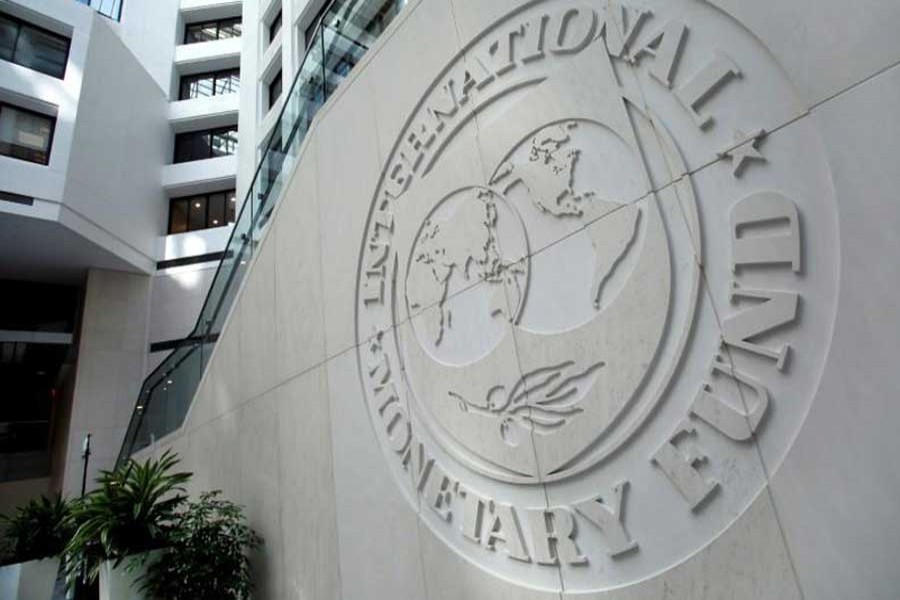The International Monetary Fund (IMF) has projected a 7.0 per cent economic growth for Bangladesh in the next fiscal year (FY), 2018-19.
The growth projection is 0.80 percentage points lower than the target the government has set for the upcoming fiscal.

The economy is set to grow 7.8 per cent in the next fiscal, according to the official projection.
The Washington-based lender has also predicted a flare-up of political tension in the run up to the general elections likely to be held in December 2018. It could leave an impact on the economic growth, it said.
"Underlying tensions remain and the risks from political unrest could increase," the IMF said in a report.
"The potential threat of terrorism continues to be a source of concern," said the 2018 Article IV consultation mission report on Saturday.
The mission completed its visit in Bangladesh on March 9 this year where it sat with the officials of the agencies involved in economic development and policy-planning.
The global lender has pegged the projected rate of inflation at 6.0 per cent in the next fiscal.
But the government wants to keep the inflation rate on a lower trajectory of 5.6 per cent in the next fiscal.
The IMF, in its "Risk Assessment Matrix," has kept the upcoming political situation at high risk line.
"Resumption in political turmoil and a deterioration in security conditions could adversely affect confidence, investment and growth," it said.
The Balance of Payments (BOP) pressures could emerge from lost export production, it said, adding that inflation could also go up.
The IMF has emphasised the necessity of stronger regulations and supervision to address the banking sector weaknesses.
The ratio of non-performing loans (NPLs) to total loans remains high and continues to grow, it said.
The volume of classified loans in the country's banking system jumped by more than 19 per cent or Tk 142.86 billion in the first quarter (Q1) of 2018.
The recent amendment to the Banking Companies Act has also raised governance concerns as it increased the number of family members allowed to sit on private bank boards from two to four, the IMF said.
It said the tenure of directors has also been extended from six to nine years.
"Additional banking licences under consideration could further challenge banking supervision and regulation," the global lender said.
The IMF also encouraged the authorities to avoid regulatory forbearance and put in place a robust resolution framework for troubled banks.
The IMF said the state-owned banks (SoBs) have volume of NPLs, low profitability, and sizeable capital shortfalls.
"Further deterioration in the state-owned commercial banks' (SoCBs) balance sheets would potentially have a negative impact on the fiscal balance and growth," the IMF mission said.
The mission said although Bangladesh benefits from lower oil prices, this factor and the risks of security dislocation in the Middle East could weaken job prospects for Bangladeshi workers in the Gulf countries.
"It will affect the remittances. This, in turn, would have a negative impact on domestic demand and the BOP," the IMF said.
"This impact could potentially outweigh the positive income shock from lower oil prices, as remittances are about four times larger than oil imports."
On the Rohingya influx to Bangladesh, the IMF cautioned that as the repatriation of the refugees takes time, there would be fiscal pressures, social and environmental costs, and security concerns.
Weaker growth, together with retreat from trade liberalisation, could adversely affect export growth, it warned.
Given the narrow export base, this could have a negative impact on BOP, it said.
The relatively low-income elasticity of demand for garment exports and Bangladesh's cost competitiveness would act as "mitigating factors", it added.
About the investment scenario, the IMF said a boost in public investment will boost the capital stock and productivity.
In addition, higher public investment will address some of the roadblocks to the much-needed private capital infusion.
The IMF said commercial access to electricity, gas to run factories, upgrading the ports, and improving connectivity via roads and rail are some areas that continue to act as hindrances to productivity.
"A planned investment of US$ 409 billion is expected under the Seventh Five-Year Plan, but the chronic under-implementation of the Annual Development Plan (ADP) … needs to be addressed," it said.


